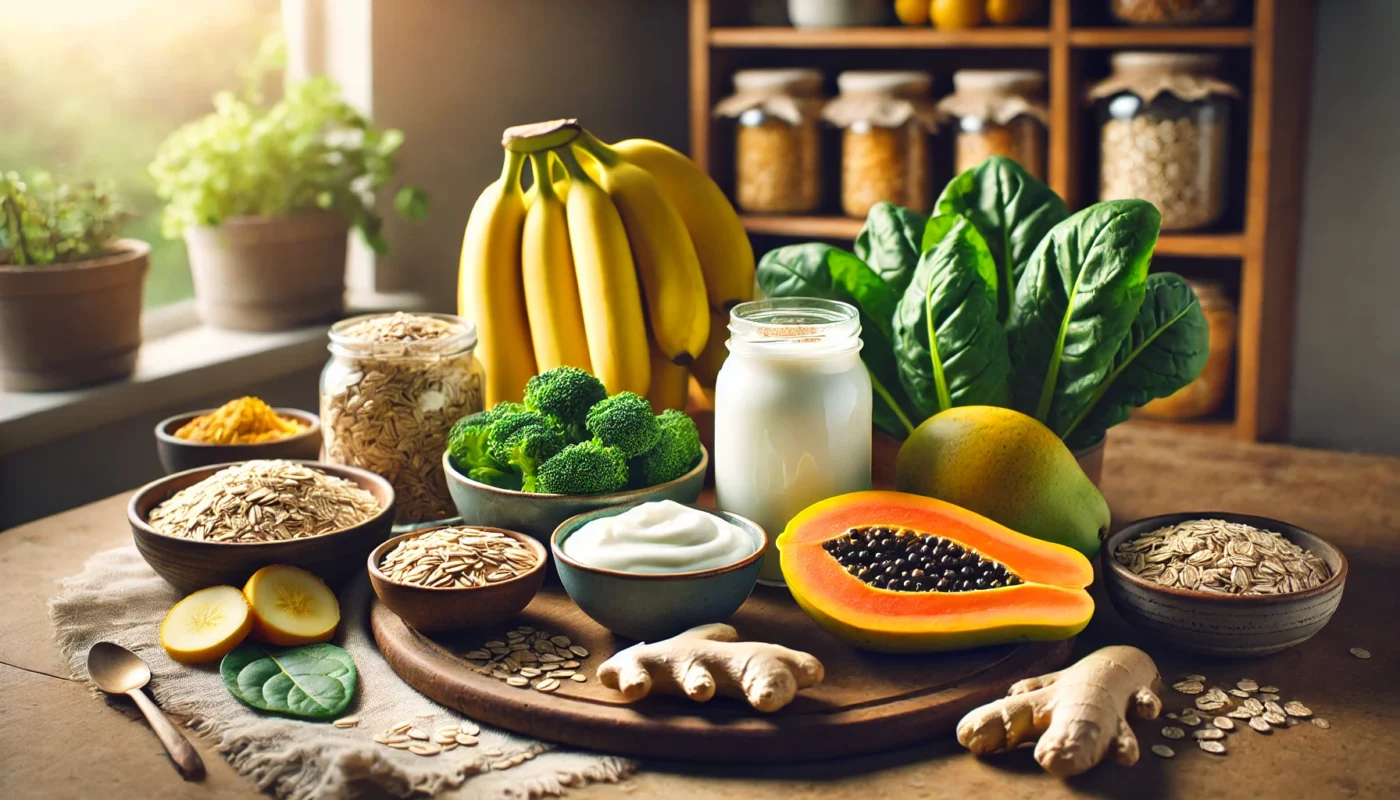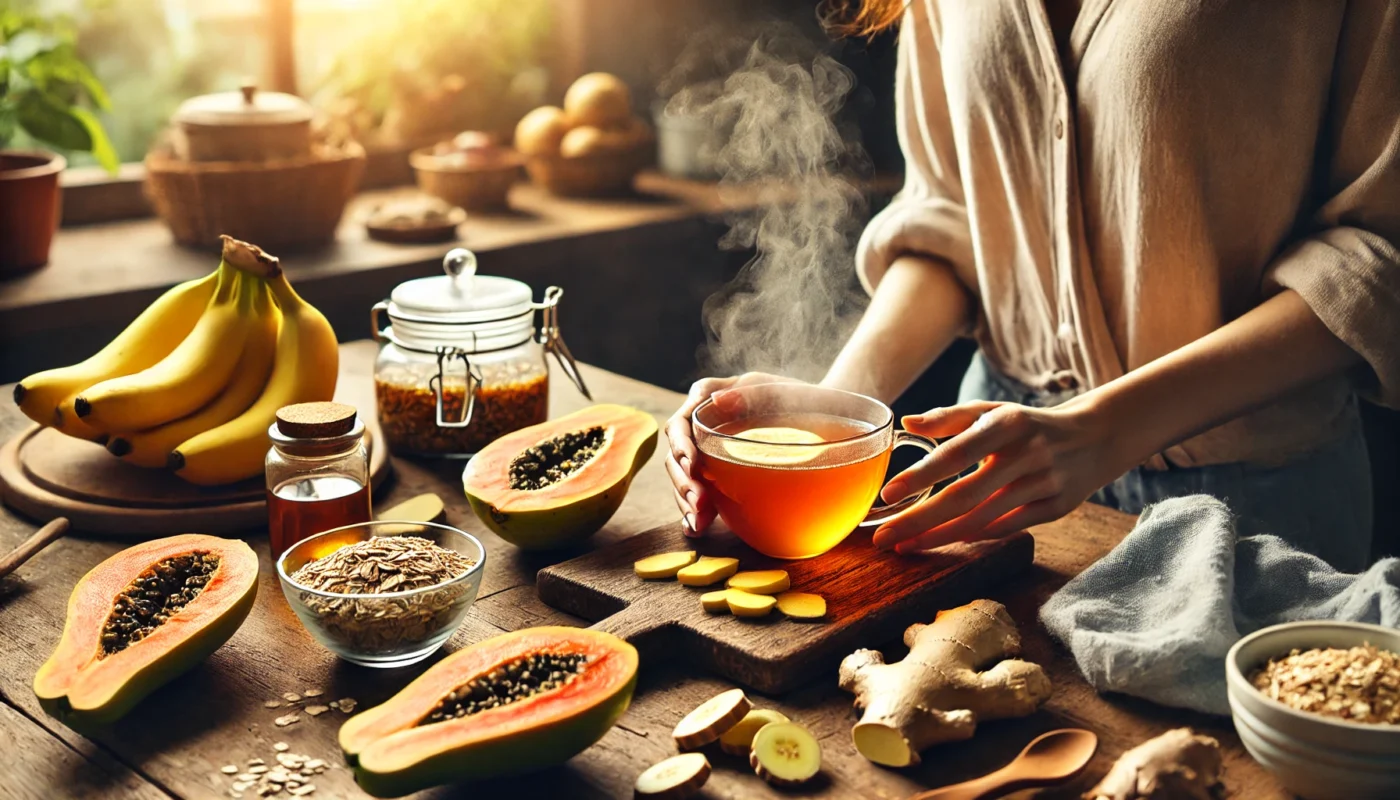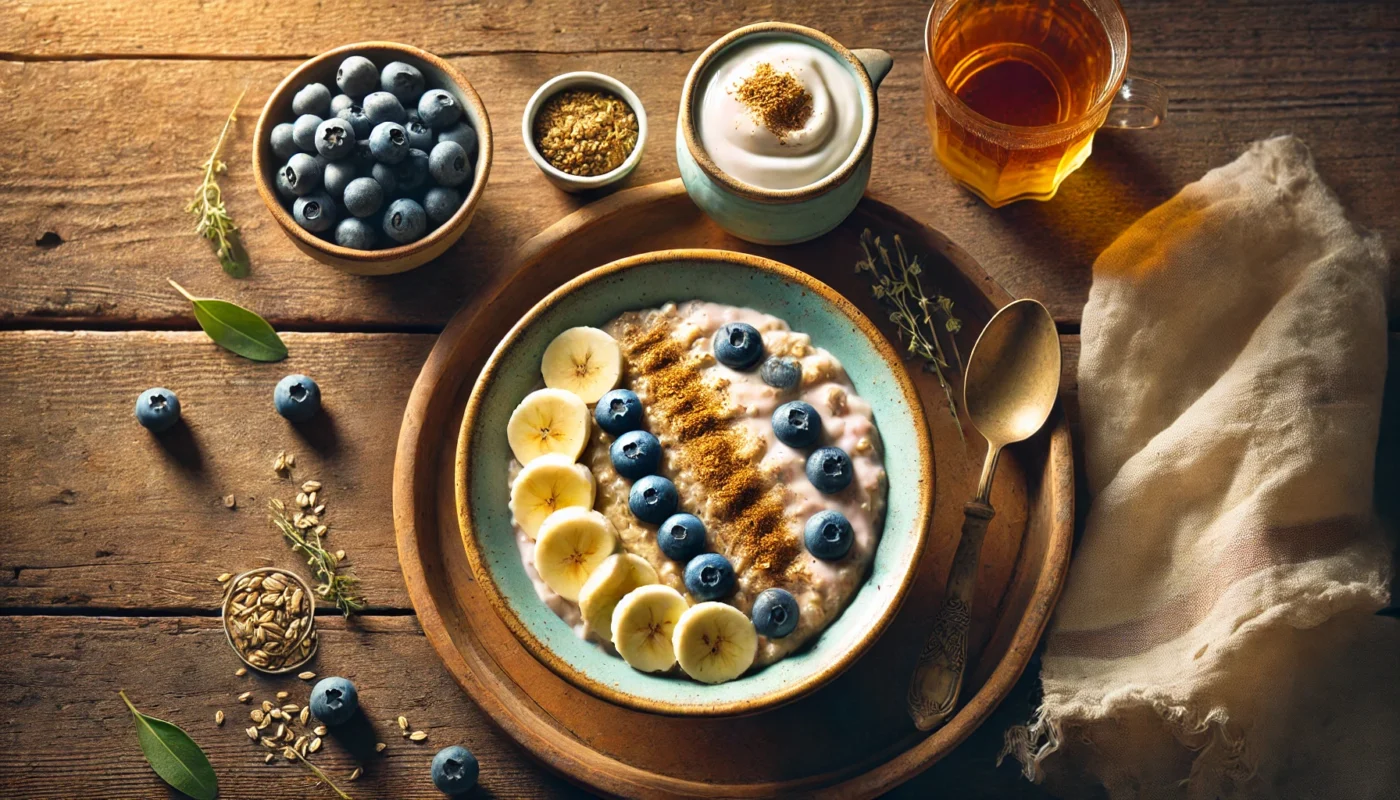Stomach inflammation, medically known as gastritis, occurs when the stomach lining becomes irritated, leading to discomfort and other digestive issues. It can result from various factors, including infection, chronic use of NSAIDs, alcohol consumption, and autoimmune diseases.
Causes of Gastritis
The causes of gastritis are diverse, ranging from bacterial infections to lifestyle choices. Helicobacter pylori, a bacterium found in the stomach, is a common culprit, often leading to chronic inflammation. Additionally, the prolonged use of non-steroidal anti-inflammatory drugs (NSAIDs) like ibuprofen can erode the stomach lining, contributing to gastritis. Lifestyle factors such as excessive alcohol consumption and smoking also play a significant role in exacerbating inflammation.
Symptoms and Diagnosis
Common symptoms include abdominal pain, bloating, nausea, and indigestion. The discomfort might vary from mild to severe, often affecting daily activities and quality of life. Diagnosing gastritis usually involves a combination of medical history, physical examinations, and tests such as endoscopy or breath tests for H. pylori bacteria. An endoscopy allows doctors to view the stomach lining directly, identifying any signs of inflammation or damage. In some cases, a biopsy might be taken to rule out other conditions.
Types of Gastritis
Gastritis is broadly categorized into acute and chronic forms. Acute gastritis appears suddenly and is often linked to dietary choices or stress. Chronic gastritis develops over time and can lead to more severe complications if untreated. Autoimmune gastritis is another form, where the body’s immune system mistakenly attacks healthy stomach lining cells, leading to persistent inflammation.
You May Also Like: Exploring the Irish Autoimmune Diet Benefits

Best Foods for an Inflamed Stomach
A thoughtful diet can significantly alleviate the symptoms of stomach inflammation and promote healing. Here are some of the best foods to consider:
1. Fermented Foods
Fermented foods like yogurt, kefir, sauerkraut, and kimchi are rich in probiotics, which are beneficial bacteria that support gut health. Probiotics help balance the gut microbiome, reducing inflammation and enhancing digestion. These foods introduce live cultures that help restore the balance of good bacteria in the gut, crucial for maintaining a healthy digestive tract. Regular consumption of fermented foods can improve nutrient absorption and strengthen the immune system, offering protection against harmful pathogens.
2. Ginger
Renowned for its anti-inflammatory properties, ginger can soothe the stomach and alleviate symptoms such as nausea and discomfort. Incorporate ginger into your meals or enjoy it as a soothing tea. Fresh ginger can be added to smoothies, salads, or stir-fries, providing a zesty flavor while aiding digestion. Gingerol, the bioactive compound in ginger, is responsible for its medicinal properties, promoting gastric motility and reducing bloating. Additionally, ginger can enhance circulation and promote relaxation, further supporting digestive health.
3. Leafy Greens
Leafy greens like spinach and kale are nutrient-dense and easy on the stomach. They provide essential vitamins and minerals without irritating the stomach lining. Rich in antioxidants, these greens help combat oxidative stress, which can contribute to inflammation. Including a variety of greens in your diet ensures a broad spectrum of nutrients, including fiber, which aids in maintaining regular bowel movements. Cooking greens lightly can make them even more digestible, allowing the body to absorb nutrients efficiently.
4. Oats and Whole Grains
Whole grains, including oats, are high in fiber and promote healthy digestion. They can help maintain a stable blood sugar level and reduce inflammation over time. The soluble fiber in oats forms a gel-like substance in the gut, slowing digestion and promoting satiety. Whole grains are also rich in B vitamins, which support energy metabolism and overall health. Incorporating a variety of grains, such as quinoa, brown rice, and barley, can provide a diverse array of nutrients and improve gut health.
5. Bananas
Bananas are gentle on the stomach and provide a quick source of energy. Their high pectin content aids digestion and can help bind stools in cases of diarrhea. Bananas also contain potassium, an essential mineral that supports heart health and muscle function. The natural sugars in bananas provide a quick energy boost, making them an ideal snack for those with digestive issues. Eating bananas can also help maintain electrolyte balance, crucial for individuals experiencing gastrointestinal disturbances.
6. Papaya
Papaya contains papain, an enzyme that aids digestion and reduces inflammation. This tropical fruit can be a soothing addition to an inflamed stomach diet. The enzyme helps break down proteins, facilitating smoother digestion and nutrient absorption. Papaya is also rich in vitamin C and beta-carotene, which support immune function and protect against oxidative damage. Enjoying papaya as a snack or adding it to smoothies can provide a refreshing way to enhance digestive health.

Foods to Avoid with Autoimmune Gastritis
While certain foods can alleviate symptoms, others can exacerbate inflammation and should be avoided:
1. Spicy Foods
Spicy foods can irritate the stomach lining and worsen symptoms of gastritis. It is advisable to limit or avoid foods with hot peppers and strong spices. Capsaicin, the compound responsible for the heat in peppers, can increase stomach acid production, leading to irritation. Individuals with sensitive stomachs may find that even mild spices can trigger discomfort. Opting for milder seasonings like herbs can add flavor without the risk of aggravating symptoms.
2. Alcohol and Caffeine
Both alcohol and caffeine can increase stomach acid production, leading to further irritation of the stomach lining. Alcohol can weaken the mucosal barrier, making the stomach more susceptible to damage from acid. Caffeine, found in coffee, tea, and some soft drinks, can stimulate acid secretion and worsen gastritis symptoms. Limiting or avoiding these substances can prevent exacerbation of inflammation and promote healing.
3. Processed Foods
Highly processed foods often contain additives and preservatives that can trigger inflammation. Opt for whole, minimally processed foods whenever possible. These foods are often high in unhealthy fats, sugars, and sodium, all of which can contribute to digestive distress. The lack of fiber in processed foods can also lead to constipation, further complicating gastrointestinal issues. Choosing fresh, natural ingredients provides the body with essential nutrients and supports overall health.
4. Acidic Foods
Citrus fruits and tomatoes are high in acidity, which can aggravate an inflamed stomach. Limit consumption of these foods to prevent discomfort. The high acid content can irritate the stomach lining, leading to increased pain and discomfort. Cooking tomatoes or consuming them with other non-acidic foods can reduce their impact. Additionally, opting for lower-acid fruits like melons and pears can provide nutritional benefits without the risk of irritation.
How to Treat Inflammation of the Stomach Naturally
In addition to dietary changes, certain natural remedies can support the healing process:
1. Herbal Teas
Herbal teas such as chamomile and peppermint have soothing properties that can reduce stomach inflammation and ease digestive discomfort. Chamomile tea is known for its calming effects, helping to relax the muscles of the gastrointestinal tract and reduce spasms. Peppermint tea can improve bile flow, aiding digestion and alleviating symptoms of indigestion. Sipping on these teas between meals can provide relief and promote relaxation.
2. Aloe Vera Juice
Aloe vera juice is known for its anti-inflammatory and healing properties. Consuming it in moderation can soothe the stomach lining and aid digestion. The gel-like consistency of aloe vera can form a protective barrier in the stomach, reducing irritation and promoting healing. Aloe vera also contains vitamins and minerals that support immune function and overall health. It is important to choose pure, high-quality aloe vera juice and start with small quantities to assess tolerance.
3. Stress Management
Chronic stress can exacerbate gastritis symptoms. Practices such as yoga, meditation, and deep-breathing exercises can help manage stress and improve overall digestive health. Stress triggers the release of hormones that can increase stomach acid production, worsening inflammation. Incorporating relaxation techniques into your daily routine can help balance these hormones and promote a sense of calm. Regular physical activity can also enhance mood and support digestive function.
4. Adequate Hydration
Staying well-hydrated is essential for digestion and can help flush out toxins that may contribute to inflammation. Aim for at least eight glasses of water a day. Water helps maintain the mucosal lining of the stomach, protecting it from damage. Proper hydration also ensures optimal digestion and nutrient absorption. Infusing water with slices of cucumber or lemon can make it more enjoyable and provide additional health benefits.

Creating an Anti-Inflammatory Meal Plan
Developing a meal plan that incorporates anti-inflammatory foods can be beneficial for those with stomach inflammation:
Planning Your Meals
Creating a balanced meal plan involves incorporating a variety of anti-inflammatory foods while avoiding known irritants. Start by making a list of preferred foods and organizing them into meals and snacks throughout the day. Ensure each meal includes a source of protein, healthy fats, and complex carbohydrates to maintain energy levels and support digestion. Planning meals in advance can help reduce stress and prevent impulsive eating choices that may trigger symptoms.
Sample Meal Plan
- Breakfast: Oatmeal topped with sliced bananas and a sprinkle of cinnamon. This meal provides a gentle start to the day with fiber, potassium, and antioxidants.
- Lunch: Leafy green salad with grilled chicken, avocado, and a ginger vinaigrette. This combination offers protein, healthy fats, and anti-inflammatory benefits.
- Snack: A small bowl of probiotic-rich yogurt with a handful of blueberries. This snack supports gut health and provides a sweet, nutritious treat.
- Dinner: Baked salmon with steamed broccoli and a side of quinoa. This meal is rich in omega-3 fatty acids, fiber, and essential vitamins.
Adjusting for Personal Preferences
While the sample meal plan offers a guideline, it is important to adjust it based on personal preferences and dietary needs. Consider substituting ingredients to accommodate food intolerances or allergies. Experimenting with different recipes and cooking methods can keep meals enjoyable and varied. Consulting with a nutritionist can provide additional guidance tailored to individual health goals and lifestyle.
Conclusion
Navigating the complexities of stomach inflammation requires a comprehensive approach that combines dietary adjustments with lifestyle changes. By incorporating gentle, anti-inflammatory foods into your diet and avoiding known irritants, you can soothe digestive discomfort and support your body’s natural healing processes.
Remember, while these strategies can offer relief, it is essential to consult with a healthcare professional for personalized advice, especially if you have ongoing symptoms or other health conditions. With the right approach, managing stomach inflammation can lead to improved health and wellbeing. Embracing a holistic lifestyle that prioritizes nutrition, stress management, and hydration can empower you to take control of your digestive health and enhance your quality of life.
Further Reading:
What To Eat (And Avoid) if You Have Gastritis
Foods to eat and avoid on a gastritis diet
herbal teas, chamomile, peppermint, aloe vera juice, stress management, hydration, anti-inflammatory diet, digestive health, gastritis, meal planning, nutrition, wellness, holistic health, probiotics, healthy eating
Important Note: The information contained in this article is for general informational purposes only, and should not be construed as health or medical advice, nor is it intended to diagnose, prevent, treat, or cure any disease or health condition. Before embarking on any diet, fitness regimen, or program of nutritional supplementation, it is advisable to consult your healthcare professional in order to determine its safety and probable efficacy in terms of your individual state of health.
Regarding Nutritional Supplements Or Other Non-Prescription Health Products: If any nutritional supplements or other non-prescription health products are mentioned in the foregoing article, any claims or statements made about them have not been evaluated by the U.S. Food and Drug Administration, and such nutritional supplements or other health products are not intended to diagnose, treat, cure, or prevent any disease.

